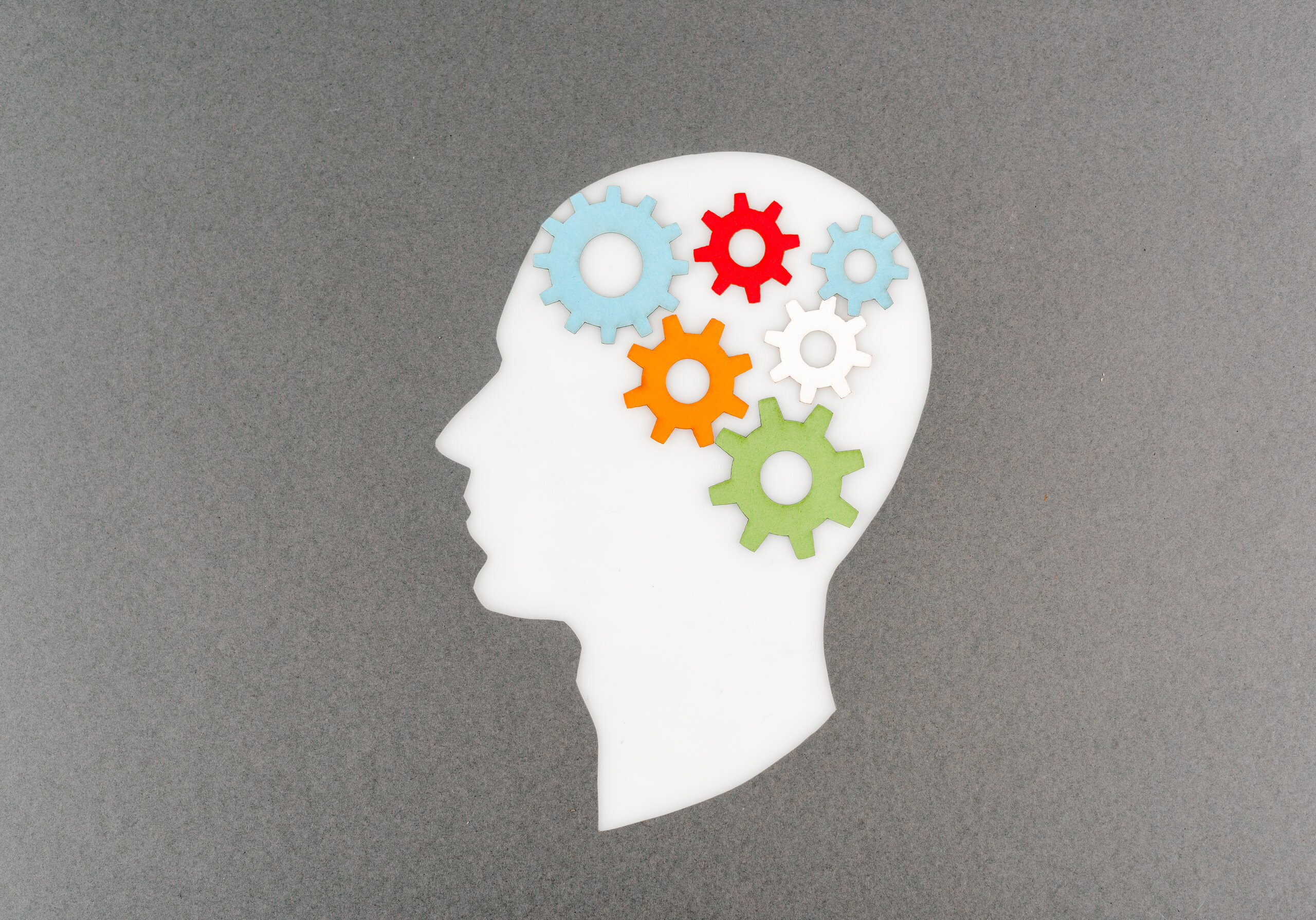Embark on your A-Level journey with us and earn UCAS points for university admission.
 Course Overview
Course Overview
Discover the convenience of Open Learning College’s Distance Learning A-Level Courses, designed to accommodate students worldwide with the flexibility to study from the comfort of home. These comprehensive two-year programs provide access to extensive online course materials and personalised tutor guidance through a virtual learning platform. Upon completion of examinations, students receive certificates endorsed by reputable Awarding Bodies such as Edexcel, AQA, or OCR.
Whether you’re a newcomer to academia or seeking to enhance your qualifications for university admission, our adaptable A-Level courses are tailored to suit your individual needs. Study at your own pace, on your own schedule, and from any location that suits you.
Our comprehensive two-year A-Level Courses cover both the AS and A2 components, requiring students to sit exams as private candidates at approved examination centres. Successful completion of all required exams within a single assessment period ensures eligibility for the full A-Level qualification.
The full A level course in Psychology offers an enriching and comprehensive exploration of the fascinating field of human behaviour and mental processes. As a final qualification, the A level in Psychology serves as a culmination of students’ studies in the subject, providing them with a thorough understanding of key theories, concepts, and research methodologies. With its emphasis on empirical evidence and critical analysis, the course equips students with the analytical skills and theoretical insights necessary to explore the complexities of human psychology with depth and rigour.
One of the distinguishing features of the A-Level Psychology course is its alignment with the AQA 2015 Psychology specification, ensuring that students cover the essential topics and themes outlined by the examination board. The course materials are meticulously crafted to follow the specification closely, offering comprehensive standalone content that encompasses a wide range of psychological theories, approaches, and research findings. Moreover, students have the flexibility to supplement their studies with supporting textbooks that provide alternative perspectives and additional resources. By engaging with a diverse array of academic sources, students gain a holistic understanding of the discipline, enabling them to critically evaluate competing theories and perspectives within psychology.
Furthermore, the A-Level Psychology course encourages students to develop essential skills in critical thinking, research methodology, and analytical reasoning. Through hands-on activities, experiments, and practical investigations, students gain practical experience in designing, conducting, and evaluating psychological research, fostering a deeper appreciation for the scientific method and its application in psychology. Additionally, students are encouraged to engage in independent study and research, allowing them to explore topics of personal interest and develop their own hypotheses and research questions. By actively participating in the research process, students cultivate valuable skills in data analysis, interpretation, and presentation, enhancing their ability to conduct rigorous and meaningful research in psychology.
In addition to its academic rigour, the A-Level Psychology course offers practical relevance and real-world applicability, preparing students for further study and employment in a variety of fields. Whether aspiring to pursue careers in psychology, counselling, education, or healthcare, or seeking to apply psychological principles in fields such as marketing, human resources, or social work, students emerge from the course equipped with the knowledge, skills, and understanding needed to succeed in their chosen path. Moreover, the interdisciplinary nature of psychology enables students to develop a broad skill set that is transferable to diverse academic and professional contexts, making the A-Level Psychology qualification a valuable asset for future academic and career pursuits.
 Course Key Topics
Course Key Topics
the A-Level Psychology course is divided into 10 modules.
Module 1: Social influence (compulsory content)
Types of conformity: internalisation, identification and compliance.
Explanations for conformity: informational social influence and normative social influence, and variables affecting conformity including group size, unanimity and task difficulty as investigated by Asch.Conformity to social roles as investigated by Zimbardo.Explanations for obedience: agentic state and legitimacy of authority, and situational variables affecting obedience including proximity, location and uniform, as investigated by Milgram.
Dispositional explanation for obedience: the Authoritarian Personality.
Explanations of resistance to social influence, including social support and locus of control.
Minority influence including reference to consistency, commitment and flexibility.
The role of social influence processes in social change.
Module 2: Memory (compulsory content)
The multi-store model of memory: sensory register, short-term memory and long-term memory.
Features of each store: coding, capacity and duration.
Types of long-term memory: episodic, semantic, procedural.
The working memory model: central executive, phonological loop, visuo-spatial sketchpad and episodic buffer. Features of the model: coding and capacity.
Explanations for forgetting: proactive and retroactive interference and retrieval failure due to absence of cues.
Factors affecting the accuracy of eyewitness testimony: misleading information, including leading questions and post-event discussion; anxiety.
Improving the accuracy of eyewitness testimony, including the use of the cognitive interview.
Module 3: Attachment (compulsory content)
Caregiver-infant interactions in humans: reciprocity and interactional synchrony.
Stages of attachment identified by Schaffer. Multiple attachments and the role of the father.
Animal studies of attachment: Lorenz and Harlow.
Explanations of attachment: learning theory and Bowlby’s monotropic theory. The concepts of a critical period and an internal working model.
Ainsworth’s ‘Strange Situation’. Types of attachment: secure, insecure-avoidant and insecure resistant.
Cultural variations in attachment, including van Ljzendoorn.
Bowlby’s theory of maternal deprivation. Romanian orphan studies: effects of institutionalisation.
The influence of early attachment on childhood and adult relationships, including the role of an internal working model.
Module 4: Approaches in psychology and biopsychology (compulsory content)
Learning approaches: the behaviourist approach, including classical conditioning and Pavlov’s research, operant conditioning, types of reinforcement and Skinner’s research; social learning theory including imitation, identification, modelling, vicarious reinforcement, the role of meditational processes and Bandura’s research.
The cognitive approach: the study of internal mental processes, the role of schema, the use of theoretical and computer models to explain and make inferences about mental processes. The emergence of cognitive neuroscience.
The biological approach: the influence of genes, biological structures and neurochemistry on behaviour. Genotype and phenotype, genetic basis of behaviour, evolution and behaviour.
The divisions of the nervous system: central and peripheral (somatic and autonomic).
The structure and function of sensory, relay and motor neurons. The process of synaptic transmission, including reference to neurotransmitters, excitation and inhibition.
The function of the endocrine system: glands and hormones.
The fight or flight response including the role of adrenaline.
The divisions of the nervous system: central and peripheral (somatic and autonomic).
The structure and function of sensory, relay and motor neurons. The process of synaptic transmission, including reference to neurotransmitters, excitation and inhibition.
Localisation of function in the brain and hemispheric lateralisation: motor, somatosensory, visual, auditory and language centres; Broca’s and Wernicke’s areas, split brain research. Plasticity and
functional recovery of the brain after trauma.
Ways of studying the brain: scanning techniques, including functional magnetic resonance imaging (fMRI); electroencephalogram (EEGs) and event-related potentials (ERPs); post-mortem examinations.
Biological rhythms: circadian, infradian and ultradian and the difference between these rhythms. The effect of endogenous pacemakers and exogenous zeitgebers on the sleep/wake cycle.
Module 5: Psychopathology (compulsory content)
Definitions of abnormality, including deviation from social norms, failure to function adequately, statistical infrequency and deviation from ideal mental health.
The behavioural, emotional and cognitive characteristics of phobias, depression and obsessive compulsive disorder (OCD).
The behavioural approach to explaining and treating phobias: the two-process model, including classical and operant conditioning; systematic desensitisation, including relaxation and use of hierarchy; flooding.
The cognitive approach to explaining and treating depression: Beck’s negative triad and Ellis’s ABC model; cognitive behaviour therapy (CBT), including challenging irrational thoughts.
The biological approach to explaining and treating OCD: genetic and neural explanations; drug therapy.
Module 6: Research methods (compulsory content)
Experimental method. Types of experiment, laboratory and field experiments; natural and quasi experiments.
Observational techniques. Types of observation: naturalistic and controlled observation; covert and overt observation; participant and non-participant observation.
Self-report techniques. Questionnaires; interviews, structured and unstructured.
Correlations. Analysis of the relationship between co-variables. The difference between correlations and experiments.
Aims: stating aims, the difference between aims and hypotheses.
Hypotheses: directional and non-directional.
Sampling: the difference between population and sample; sampling techniques including: random, systematic, stratified, opportunity and volunteer; implications of sampling techniques, including bias and generalisation.
Pilot studies and the aims of piloting.
Experimental designs: repeated measures, independent groups, matched pairs. Observational design: behavioural categories; event sampling; time sampling.
Questionnaire construction, including use of open and closed questions; design of interviews.
Variables: manipulation and control of variables, including independent, dependent, extraneous, confounding; operationalisation of variables.
Control: random allocation and counterbalancing, randomisation and standardisation.
Demand characteristics and investigator effects.
Ethics, including the role of the British Psychological Society’s code of ethics; ethical issues in the design and conduct of psychological studies; dealing with ethical issues in research.
The role of peer review in the scientific process.
The implications of psychological research for the economy.
Reliability across all methods of investigation. Ways of assessing reliability: test-retest and inter observer;
improving reliability.
Types of validity across all methods of investigation: face validity, concurrent validity, ecological validity and temporal validity. Assessment of validity. Improving validity.
Features of science: objectivity and the empirical method; replicability and falsifiability; theory construction and hypothesis testing; paradigms and paradigm shifts.
Reporting psychological investigations. Sections of a scientific report: abstract, introduction, method, results, discussion and referencing.
Quantitative and qualitative data; the distinction between qualitative and quantitative data collection techniques.
Primary and secondary data, including meta-analysis.
Descriptive statistics: measures of central tendency – mean, median, mode; calculation of mean, median and mode; measures of dispersion; range and standard deviation; calculation of range; calculation of percentages; positive, negative and zero correlations.
Presentation and display of quantitative data: graphs, tables, scattergrams, bar charts.
Distributions: normal and skewed distributions; characteristics of normal and skewed distributions.
Introduction to statistical testing; the sign test.
End of unit TMA.
Module 7: Issues and debates in psychology (compulsory content)
Gender and culture in psychology – universality and bias. Gender bias including androcentrism and alpha and beta bias; cultural bias, including ethnocentrism and cultural relativism.
Free will and determinism: hard determinism and soft determinism; biological, environmental and psychic determinism. The scientific emphasis on causal explanations.
The nature-nurture debate: the relative importance of heredity and environment in determining behaviour; the interactionist approach.
Holism and reductionism: levels of explanation in psychology. Biological reductionism and environmental (stimulus-response) reductionism.
Idiographic and nomothetic approaches to psychological investigation.
Ethical implications of research studies and theory, including reference to social sensitivity.
Module 8: Cognition and development (Option 1)
Piaget’s theory of cognitive development: schemas, assimilation, accommodation, equilibration, stages of intellectual development. Characteristics of these stages, including object permanence, conservation, egocentrism and class inclusion.
Vygotsky’s theory of cognitive development, including the zone of proximal development and scaffolding.
Baillargeon’s explanation of early infant abilities, including knowledge of the physical world; violation of expectation research.
The development of social cognition: Selman’s levels of perspective-taking; theory of mind, including theory of mind as an explanation for autism; the Sally-Anne study.
The role of the mirror neuron system in social cognition.
Module 9: Stress (Option 2)
The physiology of stress, including general adaptation syndrome, the hypothalamic pituitary-adrenal system, the sympathomedullary pathway and the role of cortisol.
The role of stress in illness, including reference to immunosuppression and cardiovascular disorders.
Sources of stress: life changes and daily hassles. Workplace stress, including the effects of workload and control.
Measuring stress: self-report scales (Social Readjustment Ratings Scale and Hassles and Uplifts Scale) and physiological measures, including skin conductance response.
Individual differences in stress: personality types A, B and C and associated behaviours; hardiness, including commitment, challenge and control.
Managing and coping with stress: drug therapy (benzodiazepines, beta blockers), stress inoculation therapy and biofeedback. Gender differences in coping with stress.
The role of social support in coping with stress; types of social support, including instrumental, emotional and esteem support.
Module 10: Forensic psychology (Option 3)
Problems in defining crime. Ways of measuring crime, including official statistics, victim surveys and offender surveys.
Offender profiling: the top-down approach, including organised and disorganised types of offender; the bottom-up approach, including investigative Psychology; geographical profiling.
Biological explanations of offending behaviour: an historical approach (atavistic form); genetics and neural explanations.
Psychological explanations of offending behaviour: Eysenck’s theory of the criminal personality; cognitive explanations; level of moral reasoning and cognitive distortions, including hostile attribution bias and minimalisation; differential association theory; psychodynamic explanations.
Dealing with offending behaviour: the aims of custodial sentencing and the psychological effects of custodial sentencing. Recidivism. Behaviour modification in custody. Anger management and restorative justice programmes.
This specification has been designed to provide a broad introduction to the scope and nature of psychology as a science, bringing the content up to date.
The emphasis is on applying knowledge and understanding rather than just acquiring knowledge, thereby developing your transferable skills of analysis, evaluation and critical thinking.
(Please click on the curriculum tab above to see a detailed view of each module)
Course Content
A-Level Psychology – FREE Starter Pack
How to…. (a series of explainer videos)
Module 1 – Social influence (compulsory content)
Module 2 – Memory (compulsory content)
Module 3 – Attachment (compulsory content)
Module 4 – Approaches in psychology and biopsychology (compulsory content)
Module 5 – Psychopathology (compulsory content)
Module 6 – Research methods (compulsory content)
Module 7 – Issues and debates in psychology (compulsory content)
Module 8 – Cognition and development (Option 1)
Module 9 – Stress (Option 2)
Module 10 – Forensic psychology (Option 3)
Course Resources
Final Exam
College Announcements
🔍 Dive into the Fascinating World of Psychology with £50 OFF the Course! 🧠💰
Ready to explore the intricacies of the human mind?
For a limited time, seize the opportunity to enrol in our A Level Psychology course with an exclusive £50 discount!
Use code PSYCH50 at checkout before the month concludes!
🌟 Why Choose Our A Level Psychology Course
Presented by Open Learning College, our A Level Psychology course offers a comprehensive study of the human mind and behaviour. Delve into diverse topics, including cognitive psychology, social influence, biopsychology, and more. Gain a deeper understanding of psychological theories and research methods essential for analysing and interpreting human behaviour.
💡 What Makes Our Course Stand Out
Engaging Content: Explore engaging modules that cover a wide range of psychological concepts and theories, supported by real-life examples and case studies.
Interactive Learning: Participate in interactive discussions, practical exercises, and quizzes designed to enhance your understanding and critical thinking skills in psychology.
Expert Support: Receive personalised feedback and guidance from experienced tutors who are dedicated to helping you succeed in your psychology studies.
Don't miss this opportunity to unlock the mysteries of the human mind at a discounted rate! Enrol now, use code PSYCH50* at checkout, and embark on your journey towards understanding human behaviour. 🧠📚🎓
*This discount code cannot be used in conjunction with any other offer.








 Get Social!
Get Social!











Emily Walker